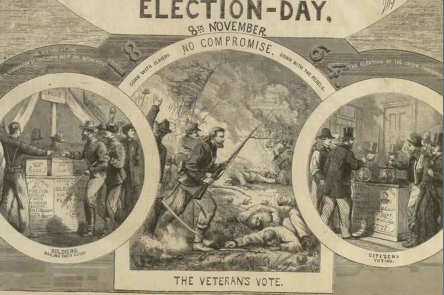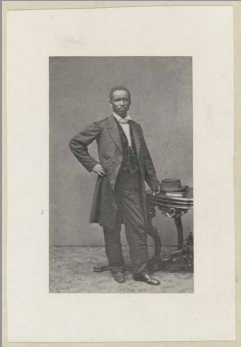Mail-in voting is nothing new. During the Civil War, nineteen states made provisions to allow soldiers to vote from the field.

The 1864 re-election of Abraham Lincoln.
Soldiers Vote
Absentee voting for soldiers became an issue during the Civil War. “They have as much right to [vote] as those citizens who remained at home [and], Nay, more, for they have sacrificed more for their country,” wrote General Ulysses S. Grant. Opponents of Abraham Lincoln alleged fraud. There were some abuses, although the remote election was fair by the standards of the time.
“If the rebellion could force us to forgo, or postpone a national election, it might fairly claim to have already conquered and ruined us.”
- Abraham Lincoln, 1864
”Pennsylvania soldiers voting from the field.
Dropping the Ball
Massachusetts Governor Andrew proposed
amending the state constitution to allow
soldiers to vote from the field. After passage
in both houses of the legislature, there was a
requirement that the amendment be published
(often done in a newspaper). The Secretary
of State and Clerk of the House blamed each
other for failing to post the amendment.
Because the process had to be started again
(and amendments required approval in two
successive legislative sessions), the amendment
never passed.
A Political Poster By Currier and Ives
Lewis Hayden and African-American Participation
After he escaped slavery in Kentucky, Lewis Hayden’s Boston home became
an important stop on the Underground Railroad. Hayden was an influential
advisor to Civil War Governor John Albion
Andrew and was later elected to the
Massachusetts legislature. After the war, as
the issue of African-American rights faded
for party bosses, he was not re-nominated
for a second term. Hayden and wife Harriet
also favored women’s suffrage

